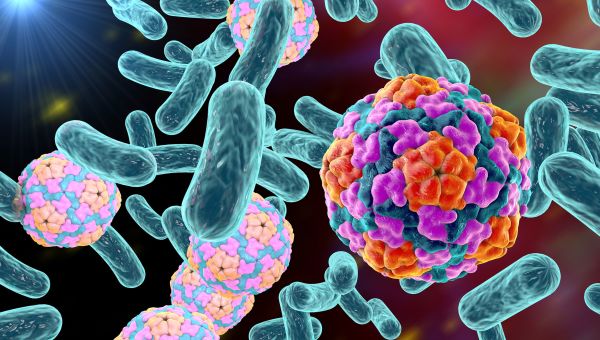Are Heartburn Drugs Bad for Your Health?
They relieve acid reflux fast but could cause problems down the road.
Updated on June 9, 2022

Proton pump inhibitors (PPIs) are widely used medicines that relieve heartburn by reducing stomach acid production. For that purpose, they're quite effective.
“It is probably one of the most popular drugs prescribed worldwide for treatment of heartburn and gastroesophageal reflux (GERD), and it has been around since 1989,” says Rudolph A. Bedford, MD, a gastroenterologist at Digestive Health Associates in Los Angeles, California. These medicines are available over the counter, under brand names including Prilosec and Nexium.
According to Dr. Bedford, while some patients, like those who have been diagnosed with a peptic ulcer, might be on PPIs temporarily (usually for a couple of months), those who suffer from chronic heartburn could be on them for years, or even indefinitely. Unfortunately, long-term use of PPIs has been linked to several potentially dangerous conditions.

Clostridium difficile
Ongoing PPI use has been associated with an increased risk of having a Clostridium difficile infection (CDI), which can cause inflammation of the colon, known as colitis. This condition causes frequent watery diarrhea, possibly along with abdominal pain and fever.
In a 2021 article in Innovations in Pharmacy, researchers analyzed eight studies of PPIs’ impact on CDI. They found that all studies showed an increased risk of having initial and recurring CDI infections. Researchers found patients were as much as 65 percent more likely to get a CDI when using PPIs, particularly when they were started in a hospital setting.
“Having the gastric pH [acidity] elevated may cause an overgrowth of this bacteria, especially in our elderly patients,” says Bedford.
Although it is still unknown whether the association between PPIs and CDI is truly causal—that PPI use specifically causes CDI—many researchers recommend the judicious use of these medications and advise that physicians should consider discontinuing patients’ use of the medications if and when patients are first diagnosed with Clostridium difficile.
More research is needed to determine the nature of the relationship between PPIs and CDI.

Heart disease
Some lab research suggests that chronic use of PPIs may speed up the aging process that takes place in the cells that line the inside of the blood vessels. The end result is a possible increased risk of heart attack and renal (kidney) failure.
A number of studies have shown that PPIs may increase the risk of cardiovascular disease. A 2019 article in the Methodist DeBakey Cardiovascular Journal reported a 20 to 50 percent increase in risk of heart attack when using PPIs in patients with and without preexisting cardiovascular conditions. A 2021 analysis from the Mayo Clinic found a two-fold increase in risk in cardiovascular disease and heart failure among patients on PPIs among people participating in a national Atherosclerosis Risk in Communities (ARIC) study. This heightened risk was found in patients using the medications long-term, for five years or more.

Dementia
After analyzing the data of 73,679 adults 75 years of age or older, researchers from the German Center for Neurodegenerative Diseases found that 29,510 of people in the study developed dementia. Those who regularly took PPIs had a 44 percent increased risk of memory loss compared to those who were not prescribed PPIs.
“The present study can only provide a statistical association between PPI use and risk of dementia,” wrote the researchers in the 2016 article, published in JAMA Neurology. “The possible underlying causal biological mechanism has to be explored in future studies.”
“They hypothesize that the PPIs somehow cross into certain portions of the brain cells and affect the brain, but it hasn’t been proven,” emphasizes Bedford.
Another study, published in 2020 in Scientific Reports, found no association between Alzheimer’s disease and the extended use of PPIs. But it did find that people taking the medication were slightly more likely to get other types of dementia than people who didn’t take PPIs for long periods of time (at least five years).

Kidney disease
In November 2016, two studies presented at the annual meeting of the American Society of Nephrology (ASN) highlighted the possible damaging effects PPIs may have on the kidneys.
The first study included roughly 187,000 participants who did not have kidney stones. In a follow-up of up to 12 years, taking PPIs was associated with a 12 percent higher risk of developing a kidney stone. Use of PPIs was also associated with lower urinary excretion of calcium, oxalate, citrate, and magnesium, which are components of kidney stones.
The second study included 144,032 patients taking PPIs or H2 blockers (which are another type of medicine used to reduce stomach acid with a different mechanism than PPIs). PPI use was associated with a greater than 30 percent higher risk of developing chronic kidney disease or kidney failure, or more than a 50 percent decline in one measure of kidney function.
“They have been seeing patients with more kidney injury in patients taking PPIs, but these are observational studies,” says Bedford. “It’s been observed, but there’s not really firm data proving it.”
A presentation at an ASN conference in 2020 looked at 26 studies analyzing the association between PPIs and kidney disease. These researchers found a number of studies showing an increased risk, but noted that most of the studies were flawed in some way.

U.S. Food and Drug Administration. Over-The-Counter (OTC) Heartburn Treatment. Content current as of: March 12, 2021.
Tawam D, Baladi M, Jungsuwadee P, Earl G, Han J. The Positive Association between Proton Pump Inhibitors and Clostridium Difficile Infection. Innov Pharm. 2021;12(1):10.24926/iip.v12i1.3439. Published 2021 Mar 9.
Trifan A, Stanciu C, Girleanu I, et al. Proton pump inhibitors therapy and risk of Clostridium difficile infection: Systematic review and meta-analysis. World J Gastroenterol. 2017;23(35):6500-6515.
McDonald EG, Milligan J, Frenette C, Lee TC. Continuous Proton Pump Inhibitor Therapy and the Associated Risk of Recurrent Clostridium difficile Infection. JAMA Intern Med. 2015;175(5):784-791.
Leontiadis GI, Miller MA, Howden CW. How much do PPIs contribute to C. difficile infections?. Am J Gastroenterol. 2012;107(7):1020-1021.
Trifan A, Stanciu C, Girleanu I, et al. Proton pump inhibitors therapy and risk of Clostridium difficile infection: Systematic review and meta-analysis. World J Gastroenterol. 2017;23(35):6500-6515.
Ariel H, Cooke JP. Cardiovascular Risk of Proton Pump Inhibitors. Methodist Debakey Cardiovasc J. 2019;15(3):214-219.
Bell, Elizabeth, J., Bielinski, Suzette, J., St. Sauver, Jennifer, L., Chen, Lin, Y., Roonery, Mary, R., Larson, Nicholas, B., Takahashi, Paul, Y., Folson, Aaron, R., Association of Proton Pump Inhibitors With Higher Risk of Cardiovascular Disease and Heart Failure. Mayo Clinic Proceedings. October 1, 2021.2540-2549. 96.
Gomm W, von Holt K, Thomé F, et al. Association of Proton Pump Inhibitors With Risk of Dementia: A Pharmacoepidemiological Claims Data Analysis. JAMA Neurol. 2016;73(4):410-416.
Torres-Bondia, F., Dakterzada, F., Galván, L. et al. Proton pump inhibitors and the risk of Alzheimer’s disease and non-Alzheimer’s dementias. Sci Rep 10, 21046 (2020).
American Society of Nephrology. Risk of Bias in Observational Studies Assessing the Relationship Between Proton Pump Inhibitors and Adverse Kidney Outcomes. November 4, 2021.
Xie Y, Bowe B, Li T, Xian H, Yan Y, Al-Aly Z. Long-term kidney outcomes among users of proton pump inhibitors without intervening acute kidney injury. Kidney Int. 2017;91(6):1482-1494.
Wu, B., Li, D., Xu, T. et al. Proton pump inhibitors associated acute kidney injury and chronic kidney disease: data mining of US FDA adverse event reporting system. Sci Rep 11, 3690 (2021).
Hart E, Dunn TE, Feuerstein S, Jacobs DM. Proton Pump Inhibitors and Risk of Acute and Chronic Kidney Disease: A Retrospective Cohort Study. Pharmacotherapy. 2019;39(4):443-453.
Rodríguez-Poncelas A, Barceló MA, Saez M, Coll-de-Tuero G. Duration and dosing of Proton Pump Inhibitors associated with high incidence of chronic kidney disease in population-based cohort. PLoS One. 2018;13(10):e0204231. Published 2018 Oct 17.
Xie Y, Bowe B, Li T, Xian H, Yan Y, Al-Aly Z. Long-term kidney outcomes among users of proton pump inhibitors without intervening acute kidney injury. Kidney Int. 2017;91(6):1482-1494.
More On


video

article


video


video


video
